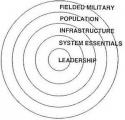Discussion will naturally focus on the interpretation of Islam in Yemen and whether its theological landscape is conducive to extremists.
This will get rather complicated, however. Historically, Yemen, particularly the Hadramawt valley, has been at the centre of a very sophisticated and anti-anarchical mode of Islamic thought, relying on mainstream Islamic theology, law and spirituality. The results have blossomed into more nuanced and mainstream readings, albeit from a conservative perspective, with a following currently spanning the United States, Europe, East Africa and through to East Asia. Yemen achieved this without state interference or involvement - peaceful preachers have independently and without state patronage encouraged their flock to work within civil society to battle society's ills, marginalise extremes, and encourage indigenous notions of Islamic expression.
Thus, in the UK, authorities have encouraged Yemeni-trained preachers to visit (through the Radical Middle Way initiative), and Muslim communities have been sending their sons and daughters to the Hadhramawt valley for decades now to learn from their example. They come back as vibrant functionaries, often with few if any resources. The effects of their work are yet to be calculated, but it is likely that without their input, the problem of violent extremism we face would be far more pronounced.
To be sure, the positive influence of this Islamic tendency is not always apparent in a Yemen ravaged by conflict. Extremists do certainly operate. But that is more to do with Yemen's fragmented insurgencies and ungoverned spaces, which foreign extremists exploit to find safe haven. Yet, the predominant modes of religious interpretation are not conducive to a large-scale 'Takfiri' type movement, which Al-Qa'ida-style operatives could draw recruits from....
Finally, with regards to Yemen, it is important to understand the country before resorting to hasty reactions. The Yemeni authorities take seriously the threat that faces them, and they have been very clear and open about where they stand. We need to increase co-operation with those authorities, and improve their capacity to the job they know how to do best - not turn them, and the local population, against us.







 "A Sherman can give you a very nice... edge."- Oddball,
"A Sherman can give you a very nice... edge."- Oddball, 



Bookmarks